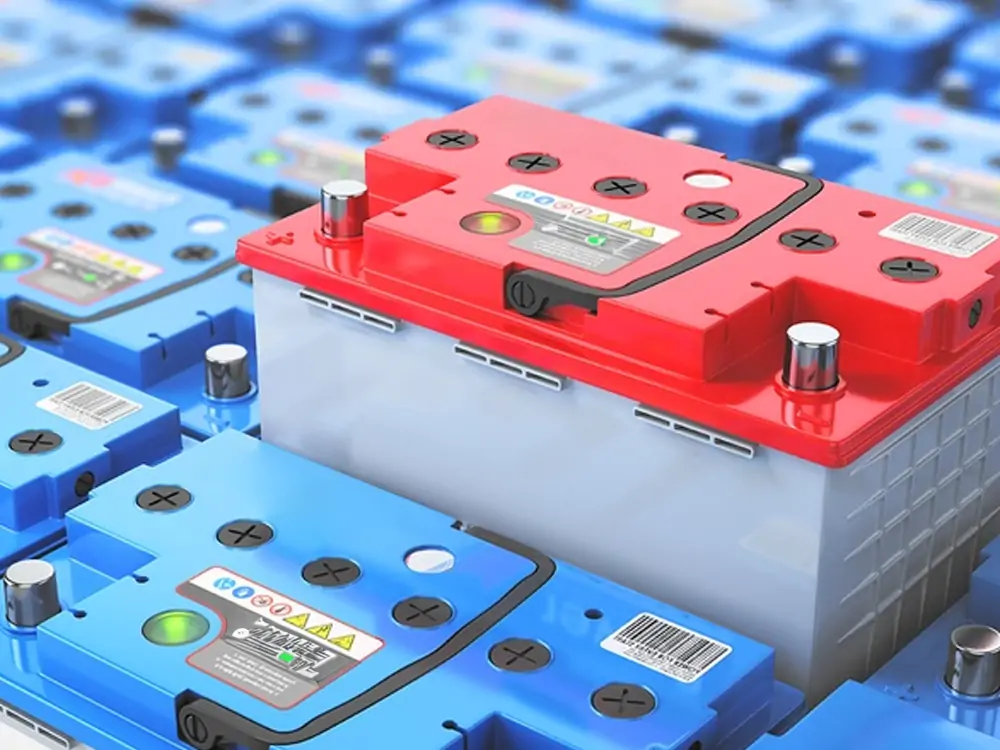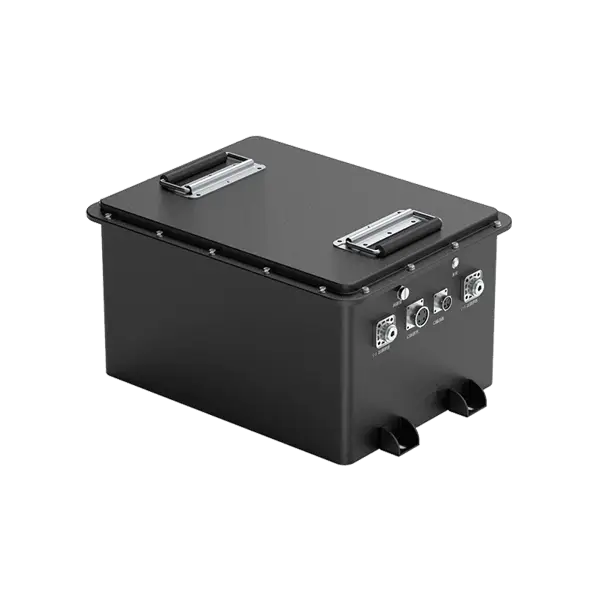Are you a golf lover? Do you also find walking long distances tiring? Then, you must rely on golf carts to conveniently travel around the golf course.
Electric golf carts play a very important role. They maintain the pace of play, provide access to older or disabled players, and reduce noise on the golf course. Electric golf carts operate using rechargeable battery-powered engines. But have you ever wondered which are the best golf cart batteries on the market?
Although there are a few different options available, two batteries dominate. They are Lithium and lead-acid batteries. Choosing the ideal battery becomes crucial since it would be very frustrating if your golf cart’s battery dies in the middle of a game.
So, in this blog, we will compare Lithium and lead-acid batteries in detail. Before we begin, let’s understand the golf cart battery.
What Is A Golf Cart Battery?

The golf cart battery supplies electric power to the motor. This power is necessary to operate an electric golf cart and requires regular charging. Batteries determine the performance and reliability of an electric cart. Hence, proper selection and maintenance are essential to maximize their lifespan and efficiency.
Moving forward, we will answer the question of the best golf cart battery in the market. So, let’s understand the two best golf cart batteries in detail.
Lead-Acid Batteries

Lead-acid batteries have been a popular choice for decades because they are reliable and cost-effective. They operate by a chemical reaction between lead plates and sulfuric acid. Let’s examine the advantages and disadvantages of lead-acid batteries.
Advantages:
1. Cost-Effectiveness
One significant advantage of lead-acid batteries is their cost-effectiveness. They have minimal initial cost and are, hence, quite affordable. They meet basic power needs while being inexpensive, making them an attractive choice.
2. Reliable And Safe
Lead-acid batteries are well known for their reliability and dependability, which have gained customer trust and confidence over the years. They are also less prone to thermal runaway or other issues that can cause explosions.
3. High Tolerance
These batteries bear overcharging quite well. Their high tolerance makes them an attractive choice for preventing any damage. Charging system malfunction can occur due to many factors. Thus, high tolerance quality becomes a necessity.
4. Availability And Recyclability
Lead-acid batteries are available in different sizes and capacities, making buying and replacing them easier for the cart owner. Moreover, these batteries are more easily recycled than many other batteries. They are one of the most recycled products. Thus, they help reduce negative environmental impacts.
Disadvantages:
1. Heavyweight
Lead-acid batteries are quite heavy and bulky. This heavy weight adds to the weight of the golf cart, reducing its speed and efficiency.
2. Slow Charging
Well, when it comes to charging speed, these batteries are not ideal for fast charging. This extended charging time reduces productivity and leads to more downtime. This makes it difficult for you to be ready on short notice.
3. High Maintenance
Lead acid batteries are quite high maintenance. They need regular checking, terminal cleaning, and optimal charging levels.
4. Lower Efficiency
They need more energy inputs since most energy used to charge the battery is lost as heat. This inefficiency leads to higher energy costs over time. Moreover, they also have lower energy density. This means they store less energy relative to their size and weight.
Lithium-Ion Batteries

Compared with lead-acid batteries, Lithium batteries for golf carts are quite new to the market. Yet, due to their high-tech applications, they have gained popularity over time. Golf Cart Lithium batteries generate power through the movement of lithium ions. They offer a modern solution for energy storage. Now, let’s move on to the advantages and disadvantages of lithium golf cart batteries.
Advantages:
1. Longer Lifespan
One significant advantage of lithium-ion batteries is their longer lifespan. The extended lifespan would mean long-term value and fewer replacements.
2. Low Maintenance
Lithium golf cart batteries do not need regular maintenance. This means there is no need for regular water level checks and terminal cleaning, which will save cart owners a lot of time and effort.
3. Lightweight
Due to their lightweight, these batteries make installation and replacement easier. This also affects the weight of the golf cart, leading to increased speed and efficiency.
4. Fast Charging And High-Density
Lithium golf cart batteries are ideal for faster charging. Their fast charging capacity means less downtime for the owner. Moreover, these batteries have high energy density. This means they can store more energy relative to their size and weight.
Disadvantages:
1. High cost
One major disadvantage of lithium batteries is their high initial purchase cost. This initial big investment can be a barrier for many.
2. Recycling Complexity
Lithium batteries are environmentally friendly, but their recycling is complex and less developed. In addition, the extraction of Lithium and other materials is very challenging.
3. Voltage Sensitivity
Another disadvantage of lithium batteries is their sensitivity to fluctuating voltage. Their lifespan and performance are notably affected by overcharging or deep discharging.
4. Less Availability
The availability of lithium batteries is quite limited. Moreover, as the demand for these batteries increases, supplies fall short. This leads to higher production costs and supply chain issues.
The Best Golf Cart Battery: Lithium VS Lead Acid Batteries
Now that we understand both batteries well, let’s compare them using a few important parameters. This will help us determine the best golf cart batteries available.
Cost
The initial cost of lead-acid batteries is much lower than that of lithium ones. This makes them an affordable alternative. However, the replacement and maintenance cost of lithium batteries is much less in the long term. Thus, they offer a better value in the long run.
Performance
When performance is considered, lithium-ion batteries are better than lead-acid batteries. They are lightweight, have high energy density, and offer better efficiency. This makes them the best battery for golf carts in terms of performance.
Battery Charging Speed
While lead acid often takes 6 to 8 hours to charge fully, lithium batteries only take a few hours. This fast charging quality makes lithium batteries for golf carts a superior choice.
Voltage Sensitivity
Lead-acid batteries are more tolerant of voltage fluctuations. Lithium batteries, on the other hand, are sensitive to voltage fluctuations. This makes battery management systems (BMS) need to track charging.
Lifespan
Depending on usage and maintenance, lithium batteries generally offer longer operational periods. Where lead-acid batteries last 2-5 years, lithium batteries last 5-10 years or even more.
Conclusion
Each type has strengths and weaknesses. If you are looking to invest in a golf cart, first set your expectations. Then, consider your budget, maintenance preference, performance needs, and long-term value. Only then can you decide on the best battery for golf carts.
